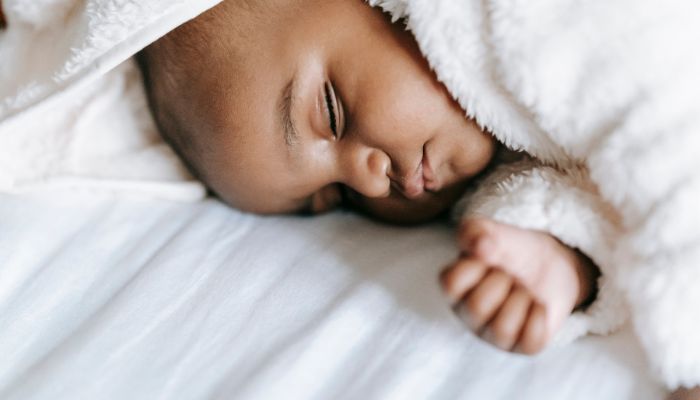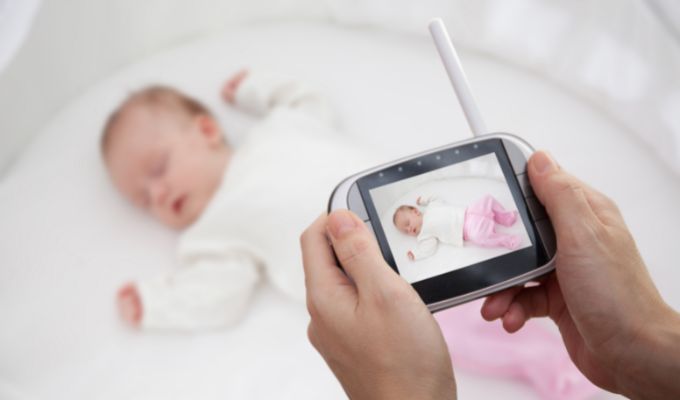It’s natural for parents to take every precaution to ensure the well-being of their baby.
Bringing a newborn baby home for the first time can be extremely stressful. Any parent would agree that caring for an infant is a monumental task. Many different kinds of at-home baby monitors have been developed out of the need to keep a constant, cautious eye on your fragile newborn, especially in the first few weeks of life.
The ideal approach would be to have a monitor that can detect your baby’s breathing even when you’re not in the room. A video and audio baby monitor is usually enough to keep a watchful eye on your little one as they sleep. Healthy babies do not require a breathing monitor, but there’s no harm in buying one to give yourself an extra level of monitoring.
In most cases, periodic breathing is completely normal and will resolve on its own as your baby matures.
Will Having a Baby Breathing Monitor Prevent SIDS?
Many of these breathing sensor monitors track important vitals like oxygen levels, heart rate, and movement to notify parents in case of an emergency. While the actual aetiology of sudden infant death syndrome (SIDS) remains unknown and extremely rare, doctors have long suspected that a lack of oxygen during sleep could contribute to the condition.
However, the high rate of false alerts generated by some of these breathing sensors may leave you feeling more worried than secure, and there’s no solid proof that using one prevents SIDS in infants. [1]
In general, babies with medical conditions or preterm newborns who require supplementary oxygen at home should be the only ones who utilise at-home oxygen monitors. If your infant has major breathing issues or requires home oxygen, for instance, your doctor may recommend an apnea monitor. For babies that are born on time and have no health issues, doctors often do not advise the need for a breathing monitor.
With that said, it wouldn’t be bad to know what’s going on with your baby as they sleep – sound, video, and movement, will give you a complete picture of how settled your baby is while napping and through the night. Having a baby breathing monitor is merely a preference and not a necessity for parents with healthy babies.
Related: When Does Child Sleep Regression Start and End?
How Breathing Sensor Baby Monitors Work
Babies’ heart rates and breathing patterns, while they sleep, can be monitored via a sensor mat placed under their mattress. The monitor will sound an alert if it detects apnea or a halt in breathing, or if the heart rate falls below a predetermined threshold.
Different monitors utilise different sorts of sensors; some attach to the body at strategic points like the waist or the foot, while others use pads that go beneath the mattress. If parents decide to utilise a monitor, they should carefully follow the included directions for optimal installation.
The monitor will send you immediate notification directly to your phone if using an app, or to the baby monitor visual unit if it detects any irregularities that could indicate your child is experiencing difficulty.
There is a wide price range for baby breathing monitors, making it possible to find one that fits any budget.
Are cheap breathing baby monitors reliable? Of course, keeping your child safe is a top priority, so before you buy a breathing or movement monitor, do your research by reading reviews and consulting the expertise of others. Low-cost breathing baby monitors can work just as well as expensive money, but you’ll typically find higher-priced monitors are more reliable – do your research!
Some monitors clip to clothing and alarms that sound after a predetermined amount of time if no motion or breathing has been detected. Others wrap themselves around the infant’s foot to measure their pulse and blood oxygen levels. And there are those that don’t even touch your infant but instead monitor their movements via a screen.
More and more parents are turning to this method of surveillance for reassurance. Having this knowledge has helped some people, they claim.
Others, however, argue that breathing monitors aren’t worth the bother they could create due to the high probability of false alarms. They also tend to be quite costly.


